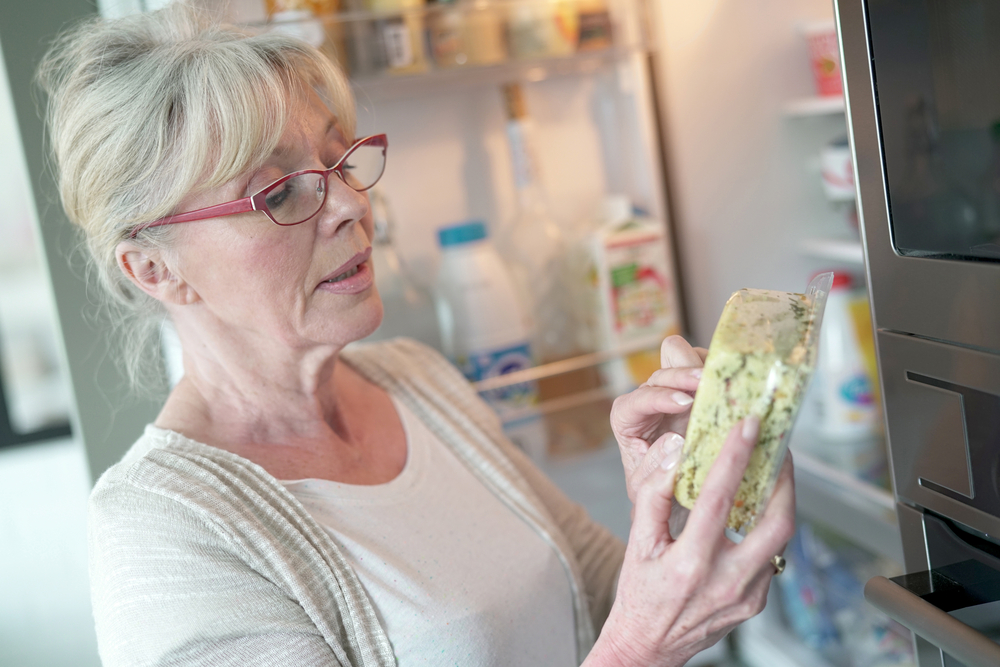Part of the Food Policy Snapshot Series
Policy name: United Against Food Waste
Overview: Since 2018, the Netherlands has been using a creative campaign called United Against Food Waste to reduce household food waste. The campaign was initiated by a task force comprising businesses, civil society organizations, research institutes, and governmental bodies. The Dutch Ministry of Agriculture, Nature, and Food Quality is providing 7 million euros ($9.5 million) to support the effort.
Location: Netherlands
Population: 17.2 million
Food policy category: Food waste
Program goals: To cut food waste in half by 2030.
How it works: The campaign focuses on educating people to not discard packaged food that is still edible, focusing specifically on the difference between “Use By” and “Best By” dates. A series of videos featuring a cartoon character named Becky explains that smell and visual cues can be used to determine if a product can still be consumed safely after the “Best Buy” date, but that products should not be eaten after the “Use By” date.
The campaign also distributes a “Yes-No” refrigerator sticker that tells consumers which foods are best kept in the refrigerator and which do not need to be kept cold. Proper food storage can help to increase its shelf life and thereby reduce waste.
In September 2020, the country held its second “Food Waste Free” week, in which two million people from 65 companies, organizations, and municipalities participated, and more than one million educational tools including the “Yes-No” refrigerator stickers were distributed.
Progress to date: The Netherlands has been working to reduce food waste for at least a decade. The United Against Food Waste project originated in response to the United Nations Sustainable Development Goals that were set in 2015 with the aim to reduce global food waste by half by 2030. The Netherlands wants to be the first country in Europe to reach that goal.
Why it is important: Worldwide, approximately one-third of all food is wasted – enough to feed two billion people and end world hunger.
In 2019, it was reported that the Netherlands wasted five million kilograms (11 million pounds) of food per day, and consumers were responsible for 42 percent of that waste. Toine Timmermans of the Ministry of Agriculture, Nature, and Food Quality, has stated that about 15 percent of consumer waste is due to misunderstanding the “Use By” and “Best By” labels.
Program/Policy initiated: United Against Food Waste began in March, 2018.
Point of contact:
Judith Sluiter, Director of Communications, Ministry of Agriculture, Nature and Food Quality
Phone: +31 (0)6 20 25 26 06
Email: J.Sluiter@minlnv.nl
Similar practices: The Netherlands has undertaken many different strategies for reducing food waste in the past, including a mass media campaign in 2010 and 2011, prizes for successful food waste reduction, and incentives for small businesses.
China launched a clean plate campaign in 2020 that encouraged diners to order less food in order to reduce leftovers and waste. In 2018, Malaysia used a “Foldover Your Leftovers” campaign to encourage consumers to reuse leftover food to make new dishes, instead of throwing it out.
Evaluation: From 2016 to 2019, the average household food waste in the Netherlands was reported to have been reduced by 15 pounds, although it is unclear what campaign, if any, was responsible for this change. More recent outcomes have not yet been reported.
Learn more:
- Consumer Education Campaigns (ReFED)
- Food Waste Matters – A Systematic Review of Household Food Waste Practices and Their Policy Implications (Journal of Cleaner Production)
- Food Waste Reduction: A Test of Three Consumer Awareness Interventions (Sustainability)
- Household Food Waste—How to Avoid It? An Integrative Review (Food Waste Management)
- Synthesis report on Food Waste in Dutch Households in 2019 (Netherlands Nutrition Centre)
References:
- 8 Facts to Know About Food Waste and Hunger (World Food Program USA)
- 12. Ensure Sustainable Consumption and Production Patterns (United Nations Department of Economic and Social Affairs)
- The 17 Goals (United Nations Department of Economic and Social Affairs)
- Best Fresh: United Against Food Waste (Best Fresh Group)
- Cutting Down on Food Waste (Government of the Netherlands)
- Dutch Food Waste Free Week (European Commission)
- Fact Sheet: Food Waste in the Netherlands (Ministry of Agriculture, Nature, and Food Quality)
- How The Netherlands Is Reducing Household Food Waste (Treehugger)
- Minimising Food Waste Through Leftovers Campaign (The Star)
- The Netherlands Launches Public Awareness Campaign to Reduce Food Waste (Foodtank)
- Netherlands Throws Away 5 Million Kilos of Food Every Day: Report (NL Times)
- Release: The Netherlands Announces National Program to Reduce Food Waste (Champions 12.3)
- Samen Tegen Voedselverspilling (YouTube)
- Samen Tegen Voedselverspilling (United Against Food Waste) (United Against Food Waste)
- United Against Food Waste: Dutch Initiative Aims to Cut Food Waste by Half in 2030 (Food Ingredients First)
- World Hunger: Key Facts and Statistics 2021 (Action Against Hunger)
- Xi Declares War on Food Waste, and China Races to Tighten Its Belt (New York Times)


